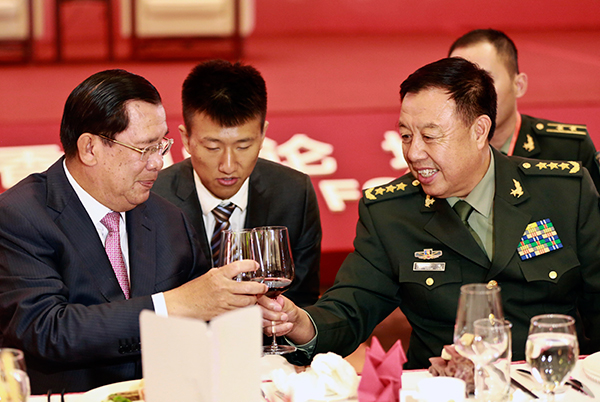 UNDERSTANDING how our cells repair damaged DNA, a breakthrough which earned the Nobel Chemistry Prize recently, could make cancer treatment more effective, experts say.
UNDERSTANDING how our cells repair damaged DNA, a breakthrough which earned the Nobel Chemistry Prize recently, could make cancer treatment more effective, experts say.By revealing how our cells automatically fix DNA mutations which can lead to illness, the discovery opened the door to significantly improving chemotherapy’s effectiveness against cancer, which kills some eight million people worldwide each year.
“You can use this knowledge to destroy cancer,” said Nora Goosen, a DNA repair expert at Leiden University in the Netherlands.
Chemotherapy attacks cancer cells by trying to scramble their genetic code and thus their ability to multiply, but cancer cells, just like healthy ones, do not give up without a fight.
he cell repair systems are going to try to undo the work of doctors by fixing the damage the doctors were trying to inflict,” said Terence Strick, a DNA repair researcher at the Jacques Monod Institute in Paris.
One solution would be to inhibit the ability of cancerous cells to self-mend.
“If you attack these repair mechanisms (in cancer cells) in combination with chemotherapy and other drugs ... it (treatment) can be more effective,” Goosen said.
Sweden’s Tomas Lindahl, Paul Modrich of the United States and Turkish-American Aziz Sancar were awarded the top chemistry award for unravelling the process by which our cells repair mutations caused to DNA by the Sun or carcinogenic substances found in alcohol and cigarettes, for example.
Mistakes in DNA, the chemical code for making and sustaining life, can cause cells to malfunction, age prematurely, and become cancerous.
The vast majority of changes to our DNA are immediately corrected, but some accumulate and lead to cancer. Some people are more susceptible to cancer because their DNA repair response is faulty.
Ironically, the same repair mechanism identified by the Nobel laureates can also cause cancerous cells to resist the effects of cancer treatment.
Alan Worsley, a spokesman for the charity Cancer Research UK, said new drugs are being developed to fight the disease.
He cited the treatment olaparib, which stops cancer cells from fixing DNA damage. It was approved by the European Commission in December 2014 for use in Europe.
Alain Sarasin of France’s CNRS research institute highlighted the risks of interfering with DNA repair systems.
“We don’t yet know how to target tumour cells specifically. If we gave a patient a molecule which inhibits the self-repair mechanism of cancer cells, it may also inhibit the repair systems of other cells like white blood cells,” he said.
“If, one day, we have a molecule which reinforces the DNA repair and can be targeted to blood cells, for example, followed by chemotherapy after, this would allow us to increase the chemotherapy dosage without unintentionally killing blood cells.
“For now, we don’t know how to do that.” – AFP
Related posts:
Developed for Communist troops fighting in the Vietnam War, Tu Youyou's treatment was major breakthrough in global fight against malari...
- Three scientists who found ways that cells fix damaged DNA—staving off cancer and other diseases—have won this year's prize There ...







